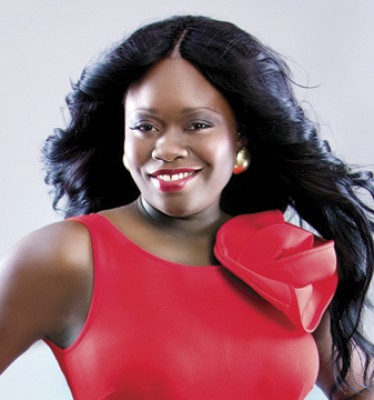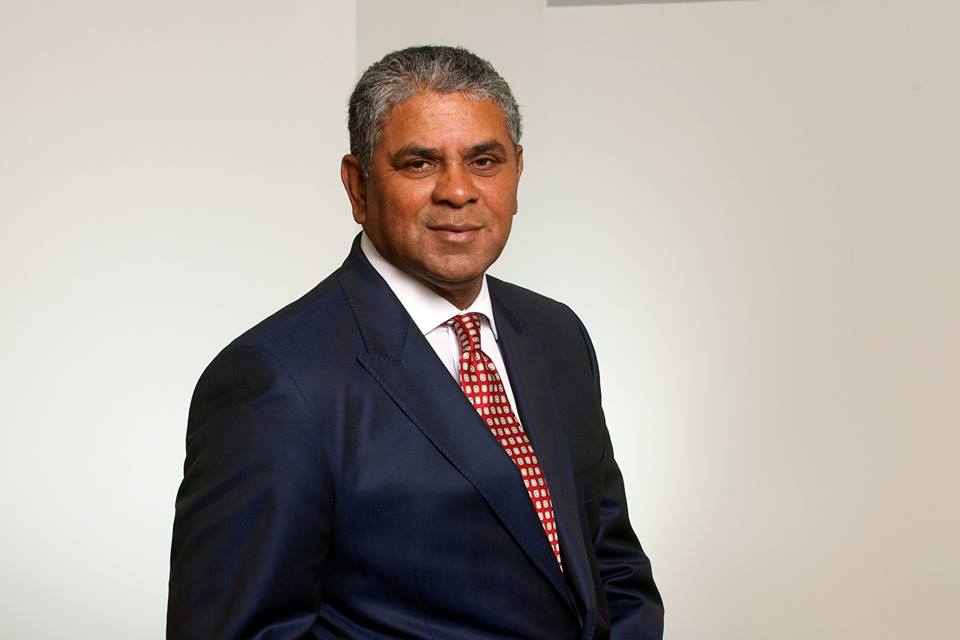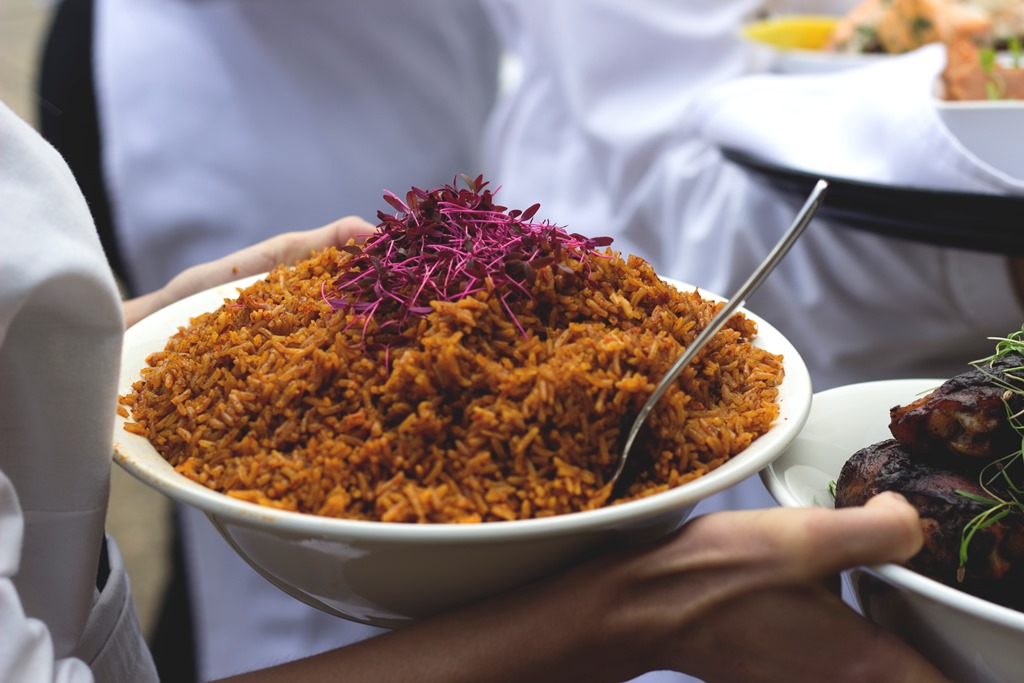
LADYBRILLE – Less than a decade ago, it was hard to find fashion shows displaying the designs of contemporary African designers on runways anywhere on the local or global fashion map. Today, the opposite holds true. Indeed, Africa’s fashion industries and local communities enjoy an explosion of fashion weeks. Mercedes Benz Fashion Week Africa, South Africa Fashion Week, Zimbabwe Fashion Week, Ghana Fashion Week, Nigeria Fashion Week, Port Harcourt Fashion Week, Mozambique Fashion Week, Africa Fashion Week London, New York, LA, Houston, are just samples of the myriad fashion weeks lovers of African fashion now enjoy.
However, not everyone has been thrilled with the explosion of fashion weeks, especially on the continent. In fact, these days, it is not uncommon to read news headlines, especially from South Africa, calling for tighter vetting processes; and industry regulations to protect unsuspecting designers from scrupulous fashion event producers. The sentiment is that there are now too many fashion shows.
While the industry summons its gatekeepers to create a conducive regulatory environment where all can thrive, here are the names of LADYBRILLE’s six Powerhouse African women fashion producers of note:
 1. Dr. Precious Moloi-Motsepe
1. Dr. Precious Moloi-Motsepe
Company: Africa Fashion International
Produces: Mercedes Benz Fashion Week Africa, Capetown Fashion Week and Jo’burg Fashion Week.
Dr. Precious Moloi-Motsepe appeared on the fashion scene with a background as a medical doctor and a reputation as the wife of one of South Africa’s richest billionaires, Patrice Motsepe. Needless to say, such background and reputation, despite her statements of her altruistic intentions, only meant many were suspicious of the newcomer.
Indeed key industry insiders were convinced her acquisitions of numerous fashion weeks, at the time, lacked any creative authenticity and was simply a numbers game that she would lose interest in once her earnings started to dip.
Dr. Motsepe had to prove that she had more to offer than being a doctor, socialite and wife to a rich business tycoon. She had to show she was here to stay and could in fact produce successful fashion shows with the goal to create a sustainable fashion industry, especially for Black South African designers.
It didn’t help that at the time of Dr. Motsepe’s entrance, it seemed to threaten the long time running South Africa Fashion Week (SAFW) produced by Lucilla Booyzen, a white South African.
In fact, at the time and for the first time in SAFW’s history, SAFW lost its long time major corporate sponsor. During that time, many pointed to Motsepe’s loud entrance and major title sponsorships as the cause for SAFW title sponsor exit.
However, Motsepe was about to face her own fashion business hiccup. Months after announcing the signing of a five-year contract, in July of 2009, with Nigeria’s ThisDay/Arise Magazine as a title sponsor, Arise pulled the plug. Arise instead launched its own Pan-African fashion week show, held in Lagos, that was similar to Motsepe’s. In fact, Arise’s event featured majority of designers that had recently featured at Motsepe’s fashion event(s).
Choosing to forego a lawsuit route, the medical doctor took it as a cue to step back, regroup and realign her focus so she could clearly define her terrain and hopefully nail it. Nail it she did. Motsepe continued with her fashion weeks, beefed up on sponsorships, solicited international fashion personalities and industry professionals, including Fern Mallis, to amplify her brand and today enjoys the title sponsorship of Mercedes Benz. Equally important, she has successfully kept South Africa as the premier destination for fashion on the continent; and the go to platforms for emerging and established African luxury design brands across the continent and in the West.
 2. Lucilla Booyzen
2. Lucilla Booyzen
Company: South Africa Fashion Week
Produces South Africa Fashion Week
The great American business executive Jack Welsh once said, “good business leaders create a vision, articulate the vision, passionately own the vision, and relentlessly drive it to completion.” This quote best fits Lucilla Booyzen, dubbed the “Anna Wintour of South Africa’s fashion industry.”
Booyzen, after attending numerous fashion weeks on foreign soil, was convinced that South Africa could have its own fashion week. In August 1997, Booyzen’s SA Fashion Week show took place in a tent on Nelson Mandela Square in Sandton. It was South Africa’s first fashion week event. Little did Booyzen know that her brave act would open the door for a phletora of fashion shows across the continent; and global recognition of Africa’s fashion industry and designers.
Extremely focused and passionate about the business of fashion, Booyzen would later launch fashion workshops and business seminars through her signature ‘Fashion Fusion’ program. The program links South African designers with hundreds of crafters nationwide in a collaborative effort that mutually benefits all parties both economically and in knowledge skills.
In 2010, Booyzen launched fashion pop-up shops in the city of Sandton; and has helped numerous South African designers place their collections in major retail and boutique stores in the country. She is a woman who believes and practices mentorship, financing and solid business infrastructure for designers. Indeed, her knack for business helped her pull through in the toughest of times when, in 2009, her long time title sponsor for SAFW pulled the plug on her. Today, her fashion week enjoys the support of some of the most successful global brands.
 3. Claudia Lumor
3. Claudia Lumor
Company: Glitz Fashion Magazine
Produces Glitz Africa Fashion Week
In 2012, Vogue Italia’s Editor-in-Chief Francca Sozzani visited Ghana for the first time to survey the fashion landscape. “I go to …Nigeria, and the only place I see a lot fashion is Ghana,” she said of her experience visiting the West African country.
That certainly was a stunning view to hear for many fashion industry heads, myself included. I must confess I was slightly vexed. Sozzani had just spent limited time in Ghana and while Ghana held its own in fashion, to compare it to Nigeria was a clear showing of a lack of understanding of the creativity the giant of Africa held, at least I thought.
However, it seemed Ghanaians drew strength from her assessment and set out to prove she was right on the money.
In the past few years, Ghanaian designers have gained notoriety across the continent and worldwide; with celebrities ranging from Alicia Keys to Beyonce rocking or working with the designs of Ghana’s very talented creative industry. Equally important is the emergence of Ghana’s Glitz Africa Fashion Week (GAFW) produced by Ghanaian fashion magazine owner Claudia Lumor.
Only in its second year, Lumor’s event has attracted the attention of important Western brand sponsors including Vogue and the British Council. The event also includes a fashion seminar and exhibition. Lumor a finance professional based in the UK who returned to Ghana and saw untapped opportunities in fashion, has been effective in wielding a strong influence in Ghana’s design industry by positioning GAFW as a credible fashion event inter-continentally and globally. It is still too early to say what lies ahead for the infant event. However, given Lumor is the 2014 winner of the British Council Young Fashion Entrepreneur Awards, I suspect the best is yet to come.
 4. Omoyemi Akerele
4. Omoyemi Akerele
Company: Style House Files
Produces Lagos Fashion and Design Week
Nigerians are known for their huge consumption of Western brands and their entrepreneurial spirit. Indeed the question has never been whether Nigerians would buy a fashion item. It has been whether the fashion item is a Western luxury design brand worthy of their attention and corresponding pounds and dollars, at the detriment of local brands.
While Nigeria’s fashion trailblazer Lexy-Mojo Eyes managed to take Nigerian fashion to many admirable foreign shores and even secure a seat at the World Fashion Organization/Council; there was still a need for a fashion event in Nigeria that would command the respect of the entire nation and the West. Enter ex-lawyer turned fashion event producer Omoyemi Akerele. Akerele worked as a Senior Style Editor for the now defunct True Love West Africa Magazine and co-owned a style company with fellow stylist Bola Balogun. She also worked as a personal stylist to the First Lady of the late Nigerian President, Umaru Musa Y’Ardua. But, it appears no one anticipated her ability to take the baton from Lexy-Mojo Eyes to help position Nigeria’s fashion industry as a serious contender at the global fashion business roundtable.
Focused on shifting the mindset of Nigerians from over consumption of Western brands to a respect for local brands, Akerele launched the ‘Buy Nigerian’ initiative under Stylehouse Files, her creative development agency.
Taking it a step further, in 2012, Akerele also launched ‘Lagos Fashion and Design Week’ (LDFW). Lagos and Nigeria, in general, had been plagued with shoddy fashion events, high levels of unprofessionalism and the ever-looming electricity/power problem. Indeed not even Arise Magazine’s Lagos Fashion Week could escape from these issues. It was yet to be seen whether Nigeria could actually produce a respectable cohesive, professional, well curated fashion event for Nigerians and fashion aficionados the world over. Akerele proved, with LFDW, that it could.
The strength of LFDW has been a collection of industry professionals, many who are Western trained, to helm its production and aggressively vet the quality and caliber of designers who show. In addition, LFDW has been able to attract reputable fashion buyers and fashion editors such as Suzy Menkes. Further, Akerele has leveraged the power of brand partnerships including that of the British Council and Guaranty Trust Bank in creating the requisite financial and enabling business environment for Nigeria’s fashion industry and its professionals.
Is it any surprise the West has had no choice but to pay attention? I think not. Akerele has earned recognition on Imran Ahmed’s Business of Fashion’s Global 500 List, worked with the British Fashion Council, Pitti Immagine (Italy), Vogue Talent Milan Fashion Week and Selfridges (UK) to showcase the talents of Nigeria’s top designers.
Her moves, in the past two years, have single handedly and quickly positioned Nigeria as an emerging new fashion capital to watch.
 5. Ronke Ademiluyi
5. Ronke Ademiluyi
Company: Africa Fashion Week London
Produces Africa Fashion Week London
The verdict is still out on whether Ronke Ademiluyi’s Africa Fashion Week London attracts noteworthy buyers that are able to translate the collections on the runway into local retail stores in the UK. While the jury still deliberates, one thing is for sure. Ademiluyi has managed to raise the much needed profile for African fashion in the UK.
For the past five years, mainstream Western media, from Bloomberg to CNN to the Daily Mail UK, have taken interest in reporting that Nigerians outspend practically every immigrant group in the UK in retail (both in clothing retail and real estate). Depending on who you ask, this may be a very bad thing and further illustration that Nigerians must work harder in curtailing their excess consumption of Western goods/ brands.
However, if you are a Nigerian in the UK, it is the perfect opportunity to
leverage the fashion culture among African groups in the UK, especially Nigerians, to launch Africa Fashion Week London (AFWL). This is what Ademiluyi has done. Ademuliyi launched AFWL in 2011 and immediately chose to affiliate the AFWL brand with brand ambassadors such as socialites and personalities in Ghana and Nigeria. Her move earned her the attention of press, mostly in Nigeria, and the UK . With the success of AFWL, Ademiluyi has purchased more African Fashion Week trade names (Africa Fashion Week Stockholm, Brussels, Nigeria, Amsterdam); and also launched a reality television show titled ‘Nigeria’s Next Top Designer,’ think Project Runway.
It remains to be seen whether these acquisitions and intended expansion(s) are just the right move for the serial entrepreneur.
 6. Adiat Disu
6. Adiat Disu
Company: Adiree
Produces Africa Fashion Week New York.
Young, aggressive and very driven best described Adiat Disu when she arrived on Africa’s fashion scene in 2009. Disu, the daughter of a Nigerian retired soccer player, was passionate about fashion, had studied business in college and was ready to unleash her passion for fashion by creating a fashion week that would show case the designs of African designers in the USA.
A particularly compelling push was the fact that the prestigious IMG produced Mercedes Benz Fashion Week New York was inaccessible to African designers. Disu thought the status quo needed to change. While attending an Arise Fashion Week event, the first of its kind at MBFW New York, she became inspired to launch what is now Africa Fashion Week New York. The show that began over the years with numerous African designers has seen a much more concise editing that places production quality over quantity. Indeed it is no surprise Disu has managed to catch the attention of mainstream niche focused media like Black Enterprise and CNN’s Inside Africa.
Disu like Ademiluyi has acquired numerous African Fashion Week trade names (Africa Fashion Week Miami, LA, London, Tokyo, Paris, Berlin). It remains to be seen what her plans are for brand expansion into these new markets.
Disclaimer: This writer worked with Adiat Disu in the onset of the launch of her brand by providing business advisory services; and resources for a complete brand overhaul, new logo, image and proper brand repositioning.
Ms. Uduak Oduok is journalist, founder and Editor-in-Chief of Ladybrille Magazine; and the pioneer of Africa’s fashion digital revolution in the West. She is also a Business litigator and Fashion and Entertainment Lawyer with the law firm of EBITU LAW GROUP, P.C. She can be reached at ([email protected]).
Photocredit: Photos owned by respective women featured.
Founded in 2007, Ladybrille® Magazine is a California based pioneer digital publication demystifying the image of Africans in the west through contemporary African fashion and celebrating the brilliant woman in business and leadership, with an emphasis on the African woman in the diaspora. Our coverage includes stories on capital, access to markets, expertise, hiring and retention, sales, marketing, and promotions.




